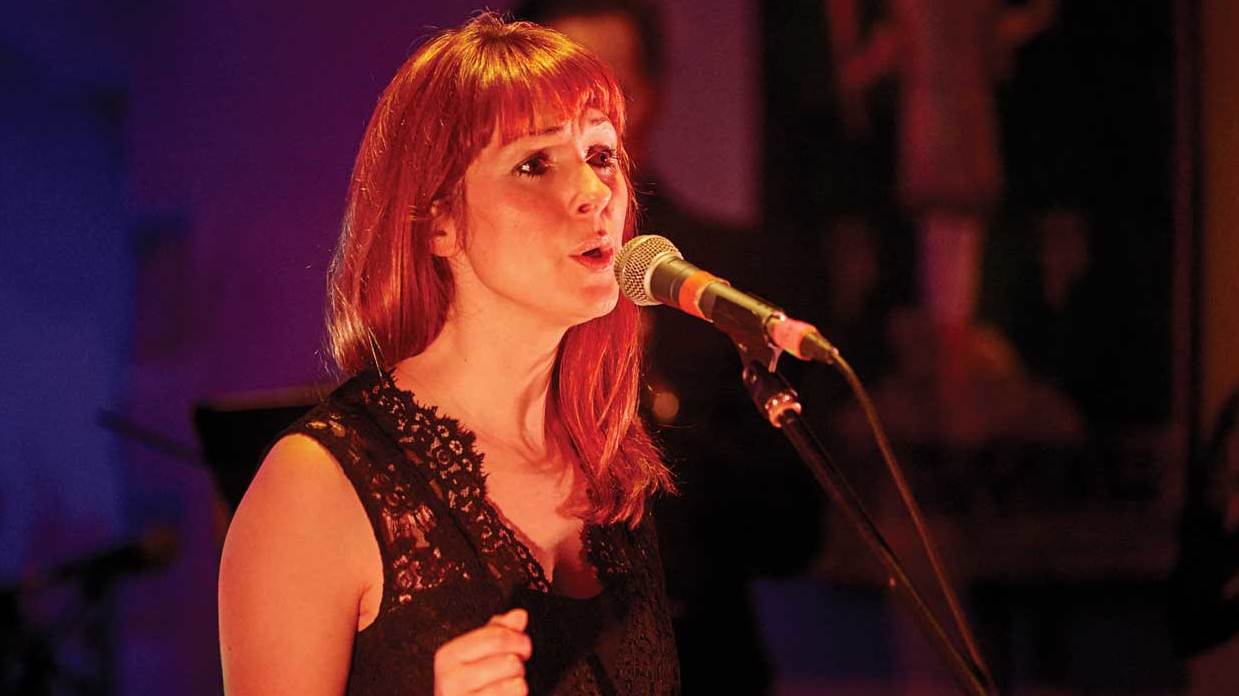As the black-clad Beatrix Players, backed by the SOUND choir, reach the climax of their impressive set, the combination of music and voices fills the church with an atmosphere it would be remiss to describe as anything other than Gothic.
Their tales of Ophelias and ladies of the lake more generally suggest a Pre-Raphaelite bearing, but towards the evening’s culmination, powerful Hammer Horror vibes take over, and as audience members we wonder which of us will be summoned forth as a human sacrifice on the conveniently situated altar.
One of the oldest sites of Christian worship in England, the church’s yard hosts the grave of pioneering writer of vampire stories John Polidori. Fortunately there are counterpoints to its Halloween heebeegeebees, as it also hosts composer Johann Christian Bach. Percy Bysshe and Mary Shelley planned their secret elopement here, so it has a heritage of music, poetry and high romance. Beatrix Players certainly channel these too.
Winners of Prog’s Limelight Award, the classical-flavoured chamber-pop trio are building on that, and their debut album Magnified, with a double- A-side single featuring All That Thinking (from said album) plus a bold cover of Trent Reznor’s Hurt. Singer Amy Birks couldn’t sound more of a polar opposite to Johnny Cash, who famously covered the song, so there’s a frisson of daring in their taking on such a self-lacerating song.
Driven by Jess Kennedy’s piano and garnished by Amanda Alvarez’s cello, they’re backed by a group of subtle sotto voce musicians (double bass, French horn, violin, percussion) who adopt a low-key background role, ushering the songs to the fore. When the choir come on, we enter a different realm of near-epic proportions.
Early on, the drama and suspension of disbelief is mildly diluted by long gaps between songs, which all but force Birks to resort to juggling to entertain us, but these hiccups are resolved and we allow ourselves to be swept away from the overstimulated accelerations of the 21st century and into the relative sanity of a world dreamed up by the Brontës, Sir Thomas Malory and John William Waterhouse.
There isn’t much pop in the group’s chamber: the ones they introduce as “pop” need a hook or two before they can do a Wuthering Heights or Cornflake Girl (the tiresome Kate Bush and Tori Amos comparisons remain valid), and they’re averse to sensuous rhythm. Yet the sombre grandiosity is their charm. Finding their stride as they swim through Obey Me, the showstopping What Do You Say and The Road To Gordes, their musical class, vocal flawlessness and inherent style lift molehills over mountains and bring roses into full bloom. Songs of grisly relationships attain a state of grace. This music takes you somewhere else.

